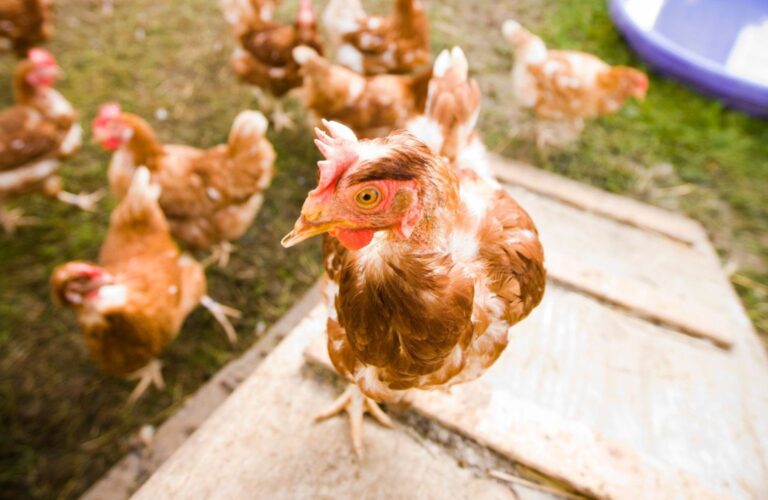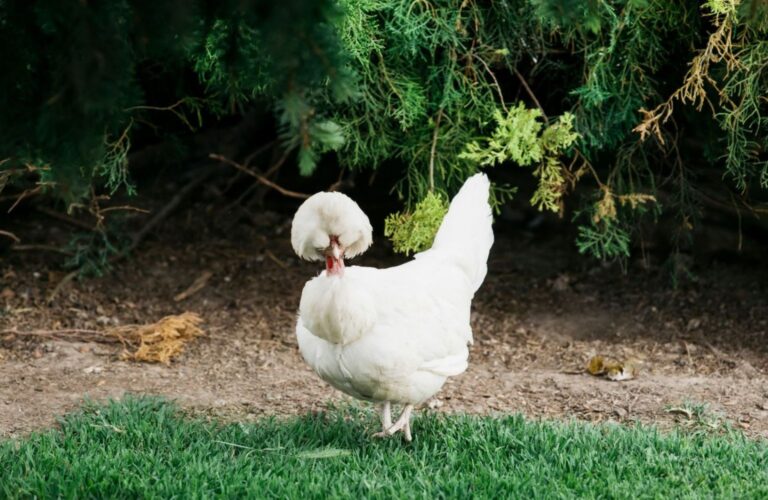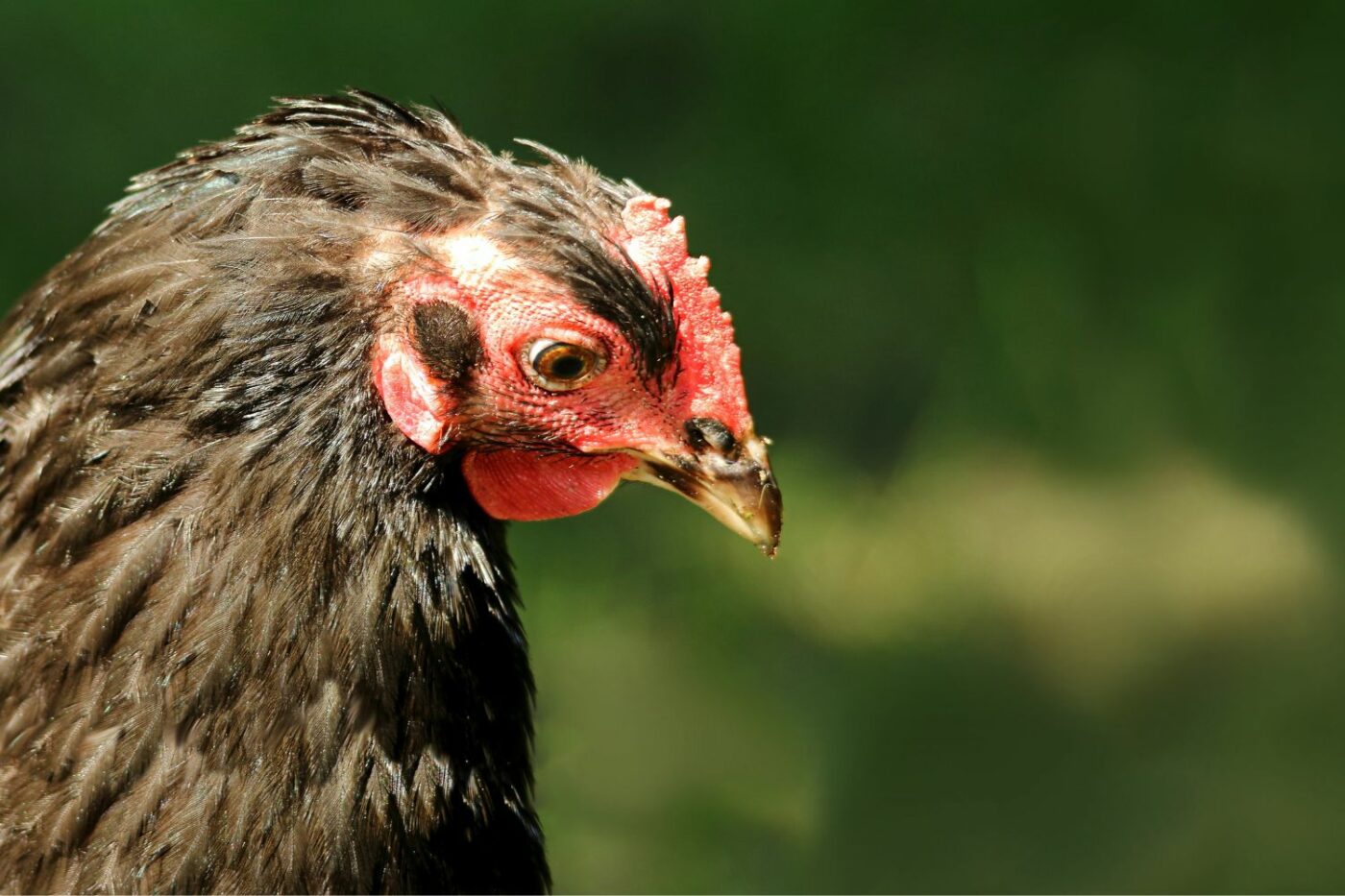
What is Chicken Molting?
For most people, cooler weather and shorter days are an indication of fall. A time to return to school and say goodbye to vacations. For chickens, it’s a sign to take a break from egg-laying and renew the feathers on their body. When chickens go through this arduous process, it is called molting. During this time of the year, most chickens stop producing fresh eggs to preserve and build up nutrients in their body. Why?
Although they aren’t laying eggs, the process of renewing their feathers takes a toll on their body on a similar level and they need to be prepared for molting.
When Does Chicken Molting Happen?
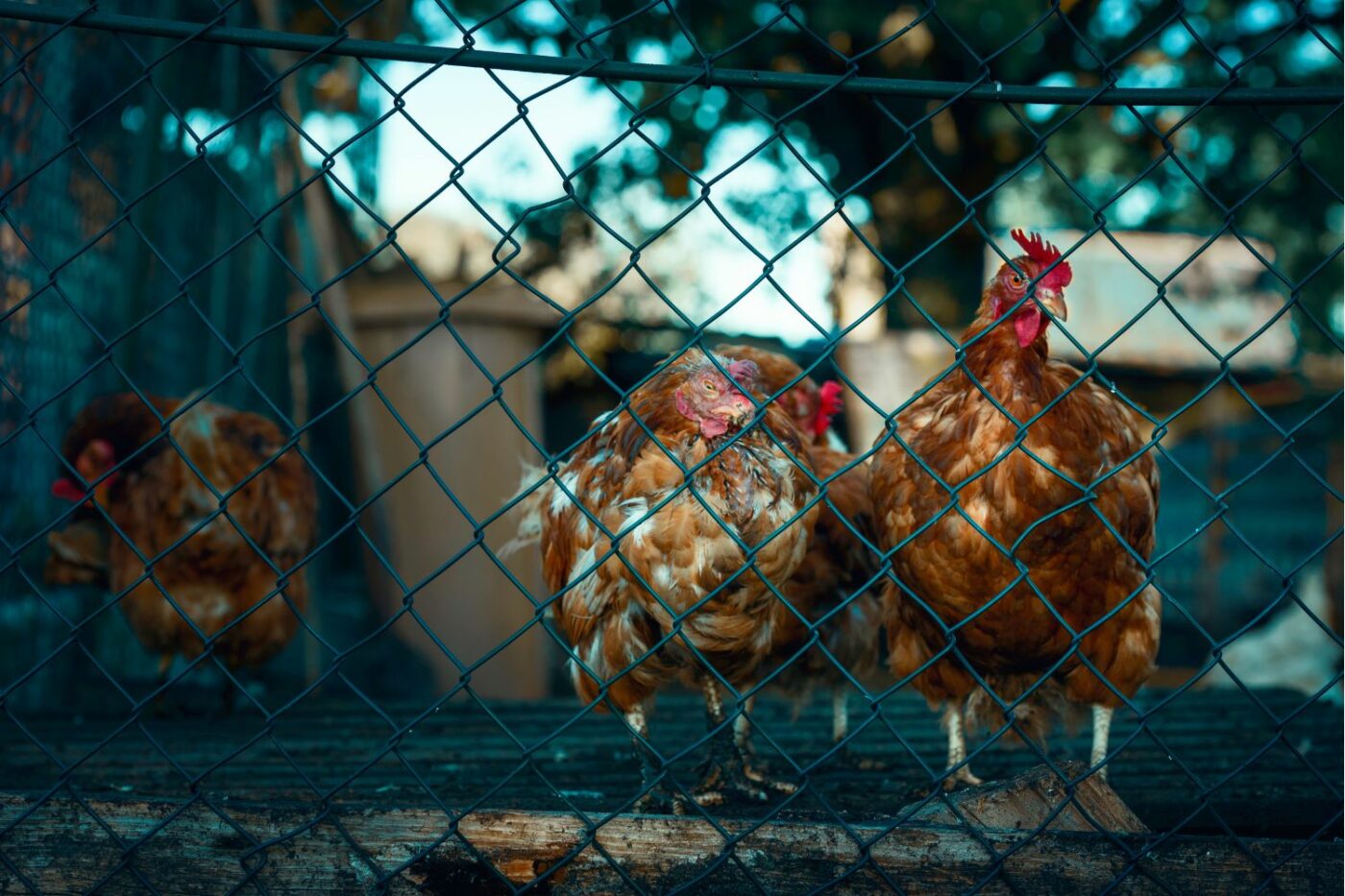
Chickens will first start molting and losing feathers around 18 months of age. This will occur annually after the first time.
Chicken molting usually starts sometime in the fall. The cooler weather and shorter days signal the chicken’s body and let it know that it is time to start molting. Similar to how a bear hibernates or a snake sheds its skin, your chickens need a way to refresh and detox their bodies. Chicken molting helps with this by getting rid of old feathers and growing new ones!
How Long Do Chickens Molt?
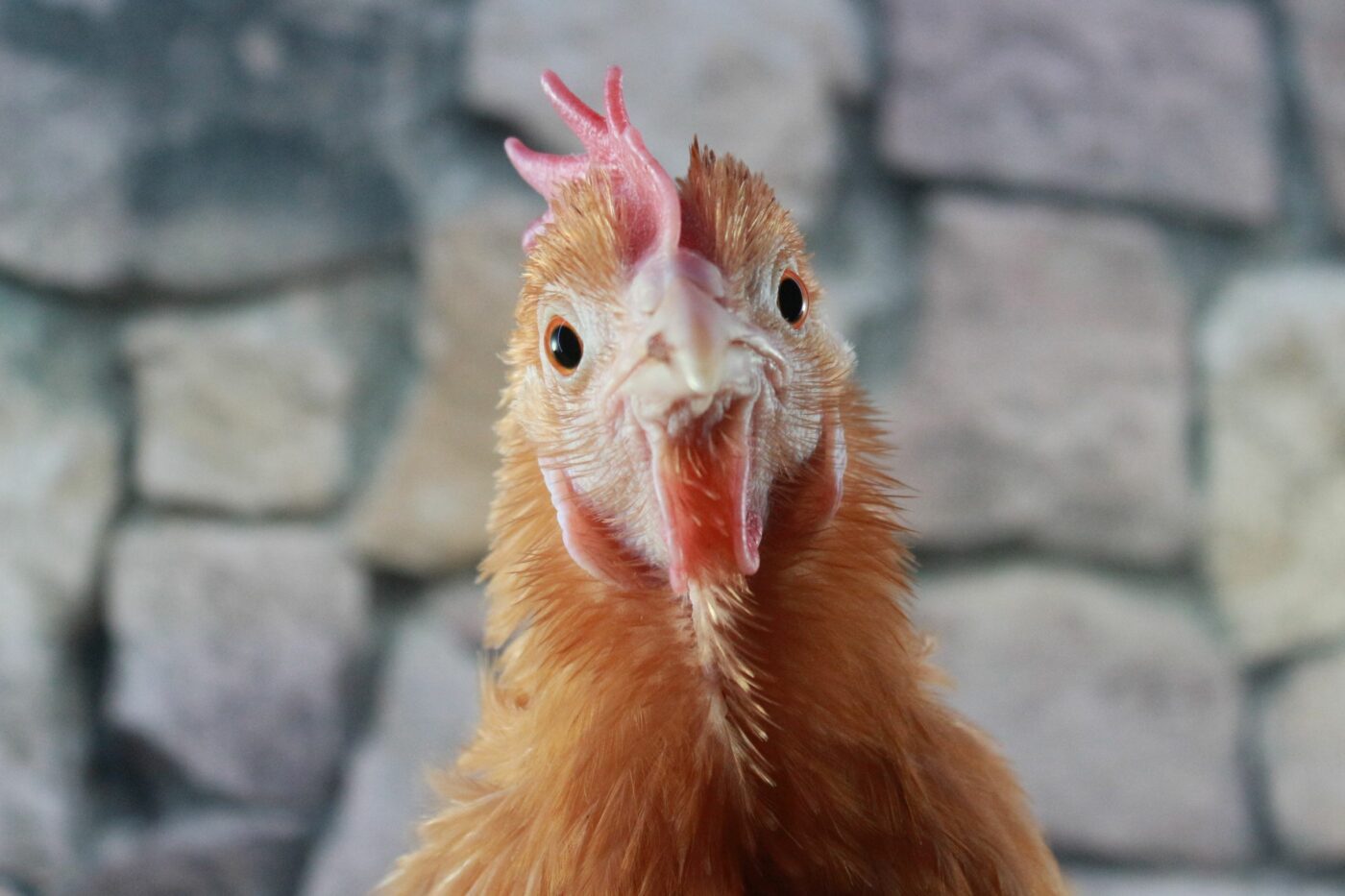
If you’re an owner of a backyard chicken flock, you probably want to know how long this phenomenon lasts. It can be a worrying time as an aspiring chicken farmer, but worry not. Backyard flock owners should expect about eight weeks of feather loss and regrowth, but it could take up to 16 weeks for some birds.
Keep in mind that each chicken breed is different. The onset and length of chicken molting look different for each bird. You can research more about the breeds of chickens you own and create a game plan to care for them specifically during their molt.
Does Chicken Molting Hurt The Chicken?

Chicken molting is a natural process in which chickens shed their feathers and grow new ones. While molting is a necessary part of a chicken’s life cycle, it can be a stressful and painful experience for the bird. During molting, a chicken’s body is effectively in a state of emergency, and all non-essential functions are shut down in order to conserve energy.
This can result in a number of physical and behavioral changes, including weight loss, reduced egg production, and lethargy. While molting is not generally harmful to chickens, it can be a difficult time for them. As such, it’s important to provide them with extra care and attention during this period.
How To Prevent Chicken Molting
Unfortunately, there is no way to fully prevent chickens from going through the molting process. Most chickens molt once a year. This is a natural way that your chickens can detox and stay healthy. However, molting can be a stressful time for chickens, and it can also result in reduced egg production. Instead of preventing chicken molting, there are a few things that you can do to help your chickens through their molting period.
First, make sure that they have plenty of fresh food and water. They will need extra nutrients to grow new feathers. Second, provide them with plenty of hiding places. Molting can be stressful, and chickens will feel safer if they can hide away from potential predators. Finally, be patient. It will take a few weeks for your chickens to grow new feathers, but eventually, they will be back to their old selves.
Is Chicken Molting Normal?
Most chickens molt once a year, typically in the fall. Molting is a natural process that helps chickens stay healthy and comfortable in different seasons. While molting, chickens may look a bit scruffy, but they should otherwise be healthy and happy.
Some backyard chicken keepers choose to help their molting chickens by providing them with extra protein and supplements. However, molting is a perfectly natural process, so there’s no need to worry if your chickens are going through it. Just make sure they have access to fresh water and food, and they’ll be back to their normal selves in no time.
How to Help Your Chicken While They Are Molting?
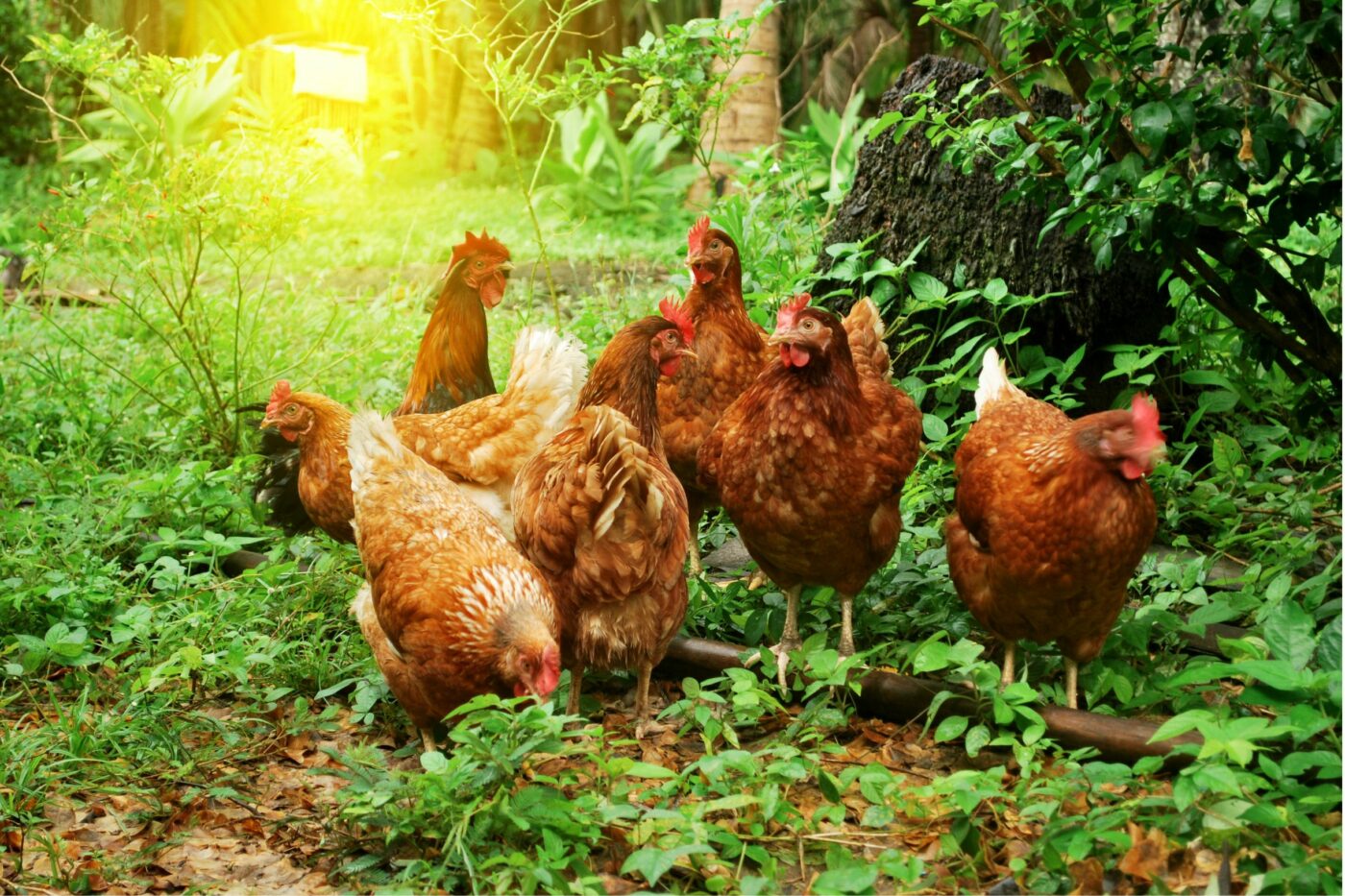
High Protein Diet
During such a stressful time for your chickens, a high-protein diet is one of the best ways to help them. As backyard chicken owners, we want the best for our fluffy chickens, and seeing them go through molting can be even more stressful for us. How does a high-protein diet help chicken molting? Well, it’s the same as when humans need to switch diets depending on the activity or life stage. The key nutrient that will help your flock during molting is protein. Your chicken’s feathers are actually made up of 80-85 percent of protein.
When you start seeing signs of chicken molting, like losing feathers, you can switch to a complete feed with around 20% protein. Or you can choose to manually mix your own feed that contains a high amount of protein. This will help your chickens channel all of those nutrients into feather growth.
Stress-Free Environment
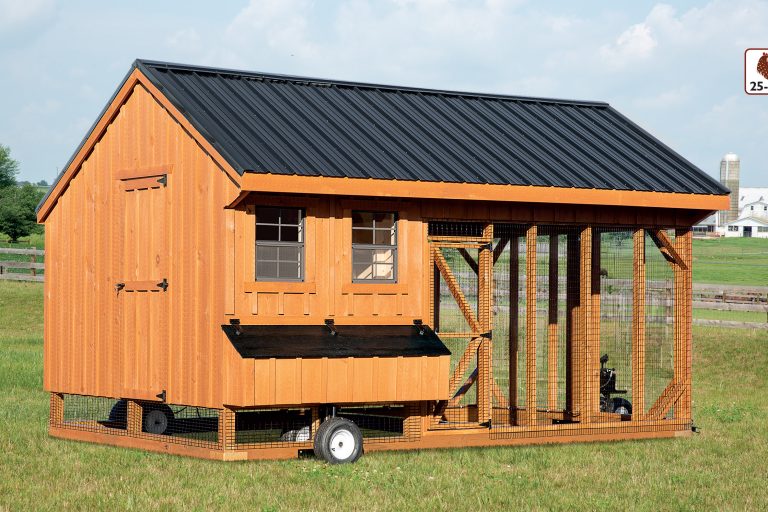
Another thing to consider is your chicken’s environment. We can’t stress enough how important it is to keep stress down to a minimum. This means no new visitors, no changes, and no new additions to your backyard flock. Your chickens will want a place to hide and feel safe so make sure that there is lots of clean and fluffy bedding. Your chicken will already be going through a lot, and adding any new changes or unnecessary stress on them will make it worse.
A safe wooden chicken coop can go a long way for your hens. If your hens have a coop that they can call home, that keeps them safe, they will be happy to reside in that coop for safety and be content. This will lead them to experience a more pleasant molting experience. To learn more about chicken coops and find the right one for you and your flock, contact us or find a dealer near you today!
Safely Transferring Diet Back
Once you see your birds getting back to their normal selves, and begin producing eggs again, it is important to start safely adjusting their diet to match their egg-producing needs once again. Instead of completely switching your feed, you should be mixing your regular feed with the high protein feed you’ve been using and gradually adding on the regular feed over the next week or so. This helps with your chicken’s digestion and makes sure that they don’t have any stomach problems.
So now you know about one of the hardest times of your chicken’s life. Go be the pro backyard flock owner you are!


